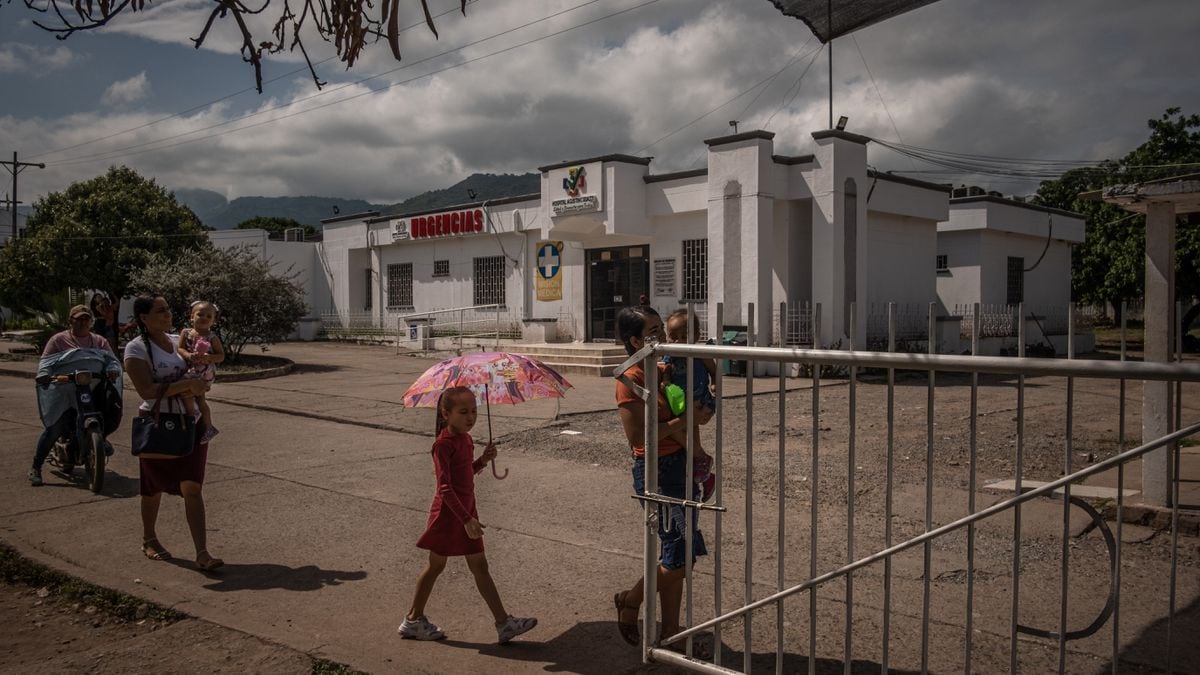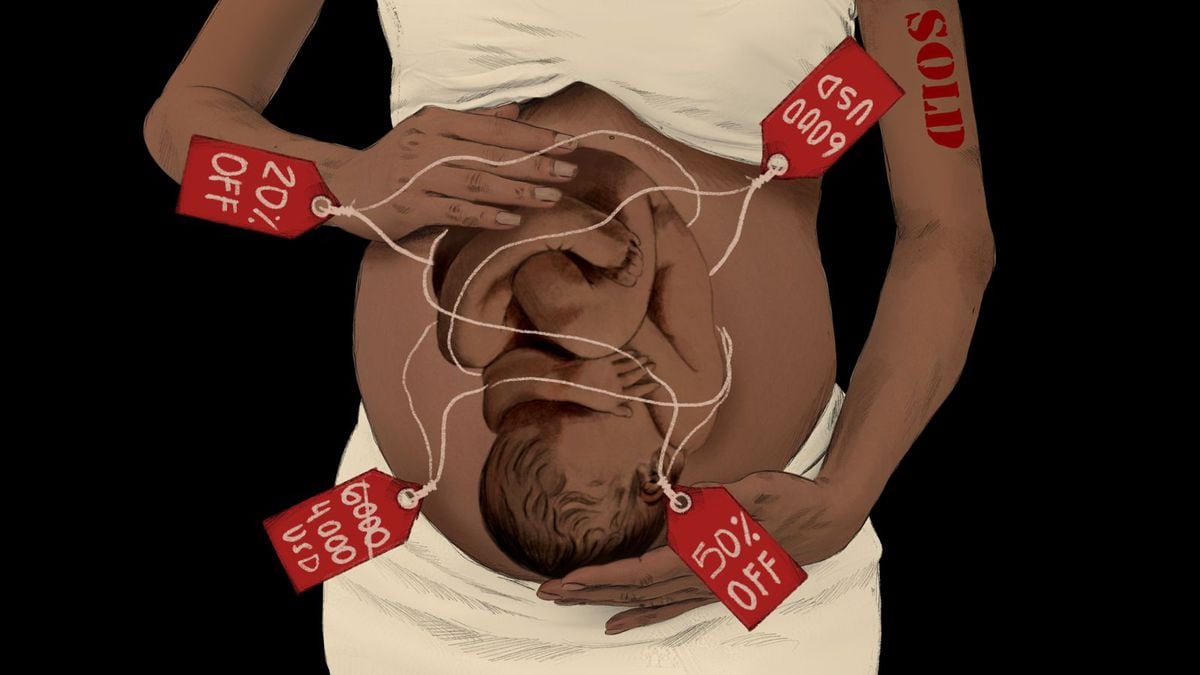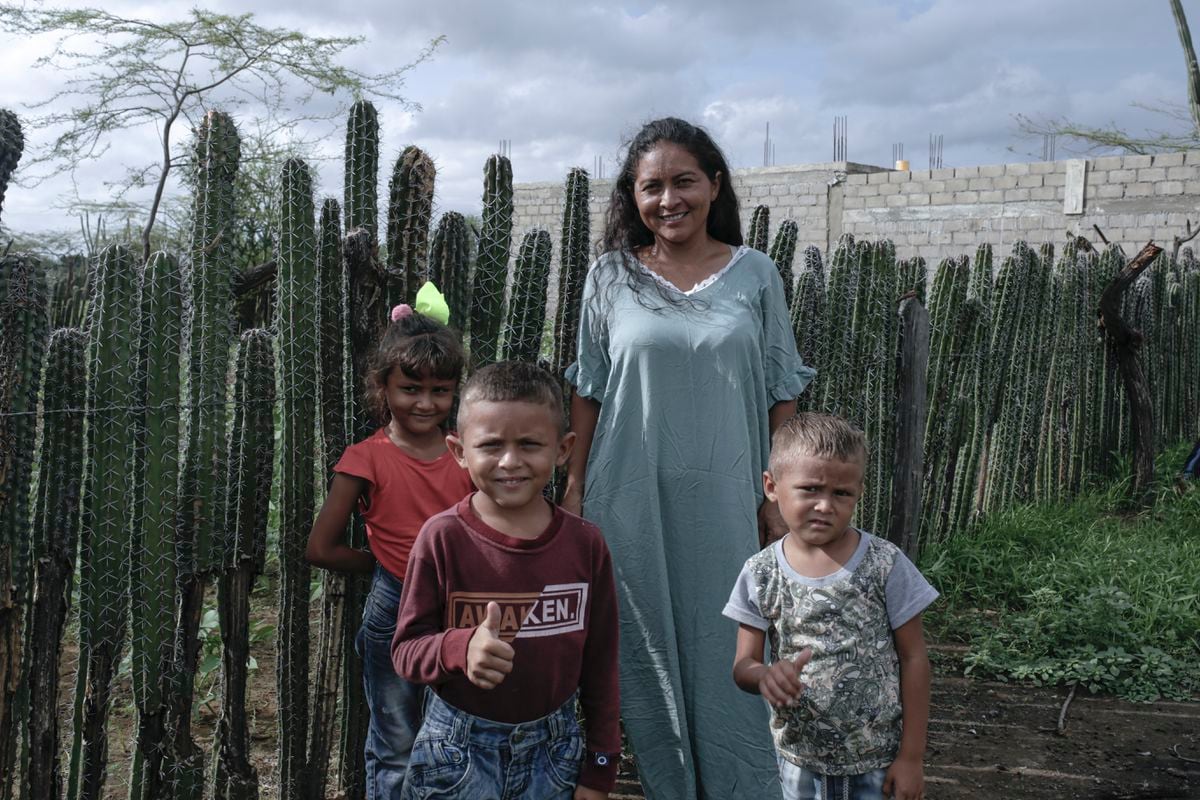Yamile Roncancio (in the center) during an activity of the Fundación Feminicidios Colombia.
Mariela Moncada was murdered at dawn on December 31 in Santander, in eastern Colombia. Their neighbors believed that the noise that made them get out of bed was the sound of gunpowder, but the next day they discovered that it had been several shots. A few houses away, a man shot his wife to death and then committed suicide. A few hours later, two other women were killed, also by their partners, but this time stabbed. Yamile Roncancio, director of the Fundación Feminicidios Colombia, believes that the country does not react enough when a woman is a victim of sexist violence. According to the observatory under his direction, which takes figures from the police and press reports, in 2021 there were at least 267 femicides. There may be more, but your organization only talks about cases that,After an analysis of the facts and according to jurisprudence, they fall into this category. There are as many on a list that they work on for confirmation.
“There is a bad narrative of femicides and that is why society does not measure the severity. The press continues to headline: 'he killed her out of an attack of jealousy', 'because she had left him,' 'Roncancio questions. In addition to keeping track of each death, "the count that no one wants to do," he says, legally represents survivors or the families of the victims. The foundation, which has the support of the Austrian Embassy in Colombia, also accompanies children who are orphaned after the murders of their mothers. "We offer them help in everything, if we have to sue the State, if we have to make a guardianship so that they provide health services." In exchange for the help, the families agree not to speak to the press. The media coverage of the cases and their exposure in networks almost always revictimizes them.
“In Colombia it has become normal for women to be killed. There is no reaction, even when it comes to feminicides of girls. Faced with this news, people remain normal. When they kill a woman, nothing happens, ”says Roncancio. Despite the fact that this lawyer is a survivor of sexual abuse, it was not her case that encouraged her to keep a record of sexist violence in the country. “When I read a news item in which the femicide called the victim's mother and said: 'Madam, I killed your daughter' I did not understand how someone could be so ruthless and how no one went out to protest, but of course, is that here is the daily bread… ”, she says, recalling the case that in 2018 prompted her to create the observatory. In the three years since it started it, it has dedicated itself to cleaning up the numbers of the police, who do not usually classify when it comes to femicide.
"If in all the cases in which a woman dies it is said that it is femicide, then none of it is," says Roncancio to explain why only until they study case by case and have a way to prove that it was a sexist crime this enters to your records.
According to the Attorney General's Office, from January to August last, at least 600 women were murdered. Although not all the cases were about femicides, the same entity has lamented the lack of protection of women in a country whose generalized violence also attacks them. According to the same entity, in the last three years, the beginning of the pandemic, 2020, had been the most lethal for women. “The measures adopted during the pandemic, especially in confinement, meant that it was impossible to report attacks committed at home and forced the victims to live with their perpetrators,” Carlos Camargo, the ombudsman, denounced then. The pandemic spread and the numbers increased. In 2020 there were 136 femicides, last year it closed with more than 200 and this year, in the first hours of January,two were already counted.
“Four years of observation and not a day of change.
The figures do not change much, but they are constant, ”laments Roncancio.
The aggressors are in most cases under the same roof as the victims.
“The pandemic made visible and deepened the barriers that women face in accessing their rights and a life free of violence.
For some women, the most insecure place is their own home ”, stated the Ombudsman's Office.
Subscribe here to the EL PAÍS América
newsletter
and receive all the informational keys of the current situation in the region

/cloudfront-eu-central-1.images.arcpublishing.com/prisa/BVU7ILACTBHF5BYTVL65FPR5KA.jpg)






